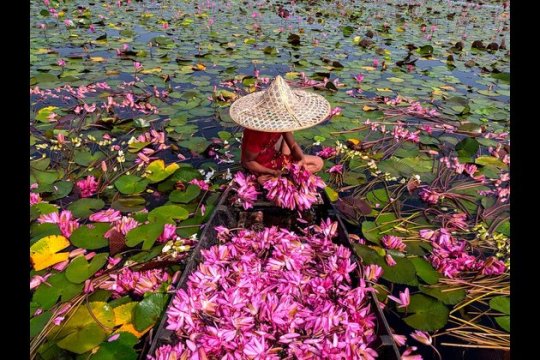#farmers
Explore tagged Tumblr posts
Text

Why doesn't the US offer these farmers a nice place to immigrate to and a path to citizenship? It would solve a problem in our country of not having enough family farmers and let's then have a peaceful life doing what they want and being left alone!!
19 notes
·
View notes
Text





i will never stop loving sheepdogs we truly do not deserve them
#sheepdog#marmara#shepherd dog#sheep dog#sheep#herding dog#sheep herding#shepherd#old europe#farm dogs#farming#farm#farmers#old english sheepdog#canines#dog photos#dog blog#dogs of tumblr#good dogs#dog breeds#dog#dogs#mammals#nature#animals#dog posting#canine poetry#aesthetic#lamb#sacrifical lamb
3K notes
·
View notes
Text

Boot soles after two years of daily use at a farm.
#interesting#interesting facts#discover#thats interesting#thats incredible#thats insane#like woah#woah#woah dude#woah :0#shoe#shoes#farm#farmers#pattern#patterns#what the flip#what the heck#what the hell#what the#whatthe#hardwork#hard work#what#what the fuck#woahhhh#but woah#woahg#woah woah woah#woah who said that
2K notes
·
View notes
Text
"In a degraded and semi-arid farming area in India, simple science-driven changes to the landscape have colored the horizon, and a village’s fortunes, with green.
In the Latur district in the central western state of Maharashtra, 40 years of erratic rainfall, groundwater depletion, soil erosion, and crop failures have impoverished the local people.
In the village of Matephal, the International Crops Research Institute for the Semi-Arid Tropics (ICRISAT) launched a project in 2023 that aimed at addressing these challenges through integrated landscape management and climate-smart farming practices. [Note: Meaning they've achieved this much in just two years!]
Multiple forms of data collection allowed ICRISAT to target precise strategies for each challenge facing the 2,000 or so people in Matephal.

Key interventions focused on three critical areas: water conservation, land enhancement with crop diversification, and soil health improvement. Rainwater harvesting structures recharged groundwater around 1,200 acres, raising water tables by 12 feet and securing reliable irrigation. Farm ponds provided supplemental irrigation, while embanking across 320 acres reduced soil erosion.
Farmers diversified their crops, converting 120 or so acres of previously fallow land into productive farmland with legumes, millets, and vegetables. Horticulture-linked markets for fruits and flowers improved income stability.
Weather monitoring equipment was also installed that actively informed sustainable irrigation practices.
“It is a prime example of how data-driven approaches can address complex agricultural challenges, ensuring interventions are precise and impactful. Matephal village is a model for other semi-arid regions in India and beyond,” said Dr. Stanford Blade, Director General-Interim at ICRISAT.
Farmers actively participated in planning and decision-making, fostering long-term commitment.
“This ICRISAT project improved yields, diversified crops, and boosted incomes. It also spared women from walking over a kilometer for drinking water, now available in the village for people and animals,” said Mr. Govind Hinge of Matephal village.
Looking ahead, ICRISAT writes it wants to use Matephal as a case study to scale these methods across India’s vast and drier average. As Matephal’s fields flourish, the village is a testament to the power of collaboration and science in transforming lives and landscapes."
youtube
-Article via Good News Network, March 3, 2025. Video via International Crops Research Institute for the Semi-Arid Tropics (ICRISAT), February 26, 2025
#india#tropics#maharashtra#farming#agriculture#sustainable agriculture#water scarcity#drought#farmers#good news#hope#Youtube#video#climate crisis#climate action#climate resilience
726 notes
·
View notes
Text


#politics#us politics#political#donald trump#news#president trump#elon musk#american politics#jd vance#law#farmers#farming#fresh food#climate#us news#fruit#public health#vegtables#weather#competition#farm#economy#maga#economics#jobs
800 notes
·
View notes
Text






Great example of everyday noragi (work clothes, worn by farmers for ex.) from Taisho period. Note the makisode sleeve shape, offering freedom of mouvement!
You can see the close-up of the weave, made from asa (bast-fiber like hemp or linen) and kamiyori (twisted paper thread). Despite its "rugged" materials, weave is delicately interlocked with regular black stripes.
The coat also presents geometrical sashiko (white quilting), both reinforcing easily worn areas (collar, hems, inner center back), and decorating the garment.
PSA for writers: please please please don't put characters doing manual labour in "silk" kimono. I'll be forever grateful ;)
#japan#fashion#kimono#fashion history#noragi#work clothes#farmers#asa#hemp#linen#kamiyori#paper thread#sashiko#Japanese quilting#taisho period#着物
1K notes
·
View notes
Text

Chevy girl is waiting your help !!!!
#photography#aesthetic#contemporaryart#ginger#ginger bush#red hair#redhaiired#america#texas#oklahoma#pillsbury doughboy#farmers#cowboy#cowgirl#so hot and sexy#sexy pose#sexy and beautiful#nice tiitted girl#wunderbar#rousse#freckles#freck beauty#frecklicious#ranch life#ranch girls#chevy#chevrolet#american wasteland#beautiful#beauttiful girls
805 notes
·
View notes
Text






















Фермеры собирают кувшинки в болотистой местности Шапла, недалеко от Барисала, Бангладеш.
Кувшинка -национальный цветок Бангладеша. Они цветут только с августа по ноябрь. Розовые кувшинки покрывают канал и водно-болотные угодья площадью 10 000 акров в деревне, которая расположена в 40 милях от города Барисал. Это место в народе называют Шапларбил (канал кувшинок). Вся деревня занимается выращиванием цветка. Рабочие начинают очень рано утром в 6 утра и работают весь день. Каждый цветок тщательно собирается вручную и перевозится в маленькой деревянной лодке фермеров. Выращивание и сбор кувшинок— это общее дело, и фермеры продают цветы на местных рынках. Их покупают не только за их внешний вид, они также ценятся в традиционной аюрведической терапии за их лечебные свойства.
Farmers pick water lilies in the Shapla wetlands near Barisal, Bangladesh.
The water lily is the national flower of Bangladesh. They bloom only from August to November. Pink water lilies cover a canal and a 10,000-acre wetland in a village located 40 miles from the city of Barisal. The place is popularly called Shaplarbil (water lily canal). The entire village is involved in cultivating the flower. Workers start very early in the morning at 6am and work all day. Each flower is carefully picked by hand and transported in the farmers' small wooden boat. Growing and harvesting the water lilies is a communal endeavor, and the farmers sell the flowers in local markets. They are not only bought for their appearance, they are also prized in traditional Ayurvedic therapy for their medicinal properties.
Источник://news.cgtn.com/news/3d3d514e796b544d33457a6333566d54/share_p.html, ://photocontest.smithsonianmag.com / photocontest/detail/farmers-collecting-the-water-lilies/, //www. ecns.cn/hd/2021-08-18/detail-ihaqcyws4450209.shtml#, /balthazar.club/o/22304-priroda-bangladesha.html.
#Bangladesh#Shaplarbil#nature#flora#flowers photography#flowers#Water lily#flower aesthetics#bloomcore#channel#boats#farmers#nature aesthetic#nature video#landscape photography#Бангладеш#Шапларбил#природа#пейзаж#флора#цветы#Кувшинка#канал#лодки#фермеры#природнаякрасота
501 notes
·
View notes
Text




Oh, this will end badly.
So many middle class farmers are screwed under Trump?
389 notes
·
View notes
Text

This farmer couple used silicon to create molds in the shape of their own feet. They then planted turnips using these molds. As the turnips grew, they filled the molds and took on the shape of their feet.
Disney World grows vegetables like this in molds, too.
1K notes
·
View notes
Text
Get your meat directly from a farm and right to your table! 😆🥩 @swansonfamilyfarm proud to offer quarter, half, and whole cow beef shares—a sustainable, farm-to-table option for high-quality meat straight from the source. By supporting Swanson Family Farm, you’re empowering local farms, fostering food security, and contributing to a lasting impact on agriculture.
Ready to stock your freezer with premium beef? Visit swansonfamilyfarmllc.com to learn more and be part of their growing community of supporters! 🌱💪
Over the last decade, Swanson Family Farm has worked hard to connect family farms across the country, providing nutrient-dense food and supporting farmer-led, farm-based training programs. 🐄✨
@successisus_
#farm#farmers#black farmers#black owned businesses#support black owned#black owned business#black business#black economics#black owned#black entrepreneurs#black excellence#entrepreneur#food#georgia#carnivore#carnivore diet#business owner#black health#b1#black people#black power#black empowerment#black liberation#black lives matter
426 notes
·
View notes
Text


Come help me shift it
418 notes
·
View notes
Text

322 notes
·
View notes
Text

Travnik, Bosnia and Herzegovina 1920s
#travnik#bosnia and herzegovina#europe#history#vintage#photography#architecture#people#street life#women#farmers#historical clothing#bih
227 notes
·
View notes

